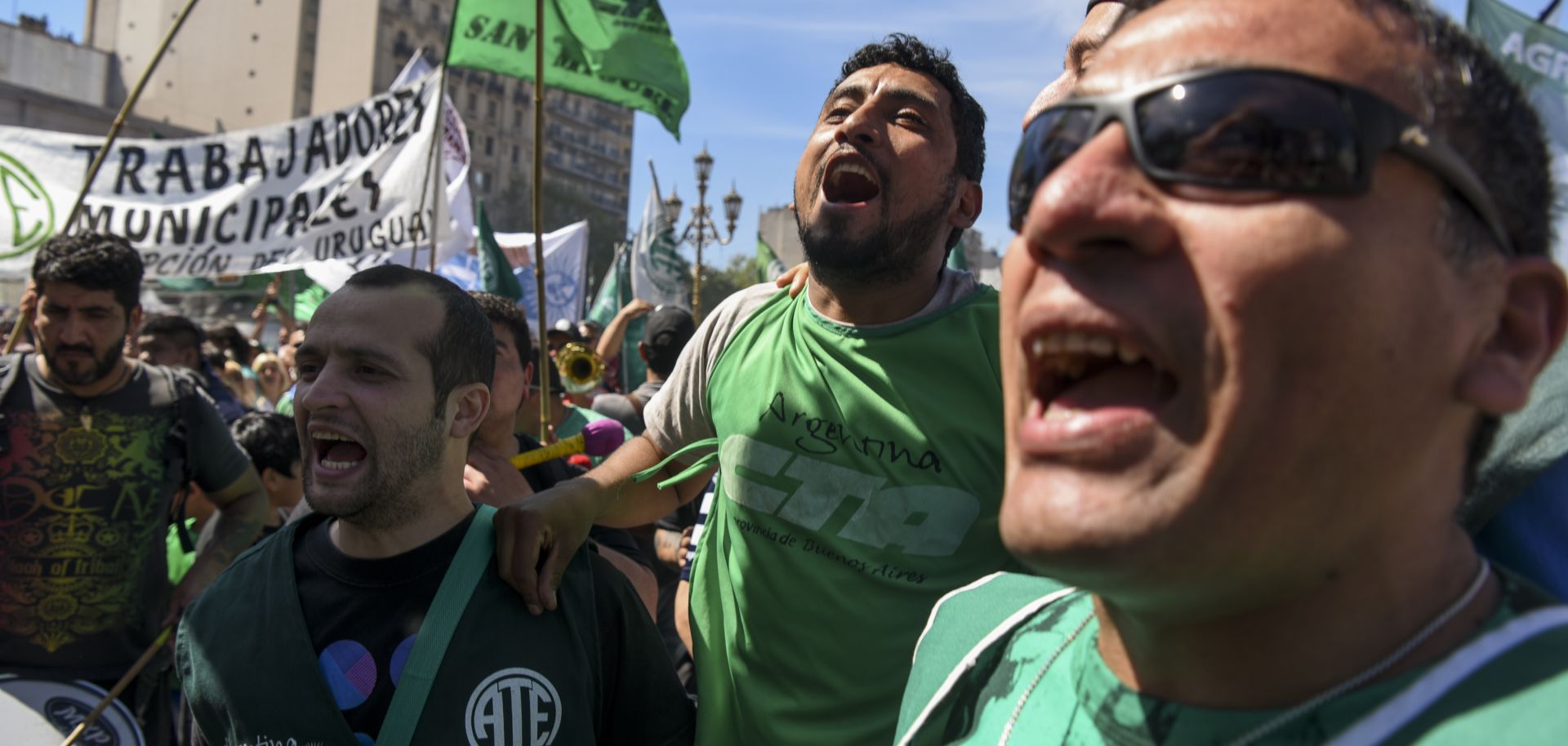ASSESSMENTS
Why Argentina's Leader Is in for a Tough 2019
Jun 1, 2018 | 09:00 GMT

State workers demonstrate outside Argentina's Congress in Buenos Aires in September 2016. Argentine President Mauricio Macri's decision to negotiate a loan with the International Monetary Fund will complicate his efforts to secure re-election next year.
(EITAN ABRAMOVICH/AFP/Getty Images)
Highlights
- Argentina’s request for a standby loan from the International Monetary Fund will force the country to carry out tighter fiscal measures, such as reducing the transfer of funds to the provinces.
- As a result of his decision to negotiate a deal with the IMF, President Mauricio Macri will have a more difficult time gaining congressional support for economic and labor reforms.
- Although divisions persist in Argentina’s political opposition, worsening economic conditions will encourage Macri's rivals in the next quarter, hurting the president's chances of winning re-election in 2019.
Proceed to sign up
Register NowAlready have an account?
Sign In